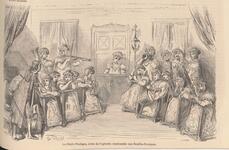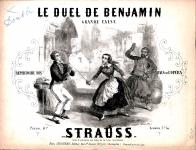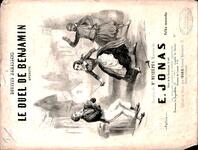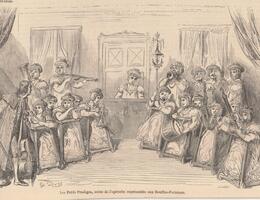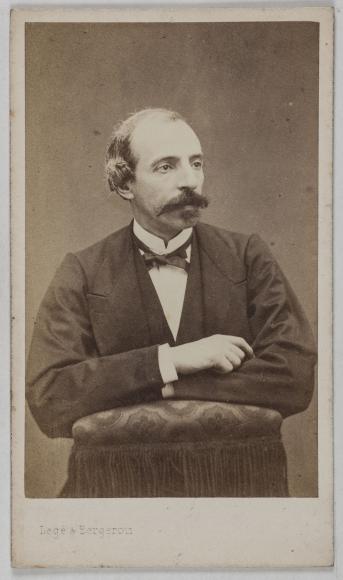
Émile JONAS
1827 - 1905
Composer
Parisian by birth, Émile Jonas entered the Paris Conservatoire in 1841 (at the same time as Hervé) to take classes in harmony (Bazin), piano (Le Couppey) and composition (Carafa). He finished his studies with a second Grand Prix de Rome in 1849. At a time when his contemporary Hervé was moving from church to theatre, Jonas, who was Jewish by faith, dreamed of operetta while holding down posts as organist, then musical director (1855), at the Sephardic synagogue on Rue Lamartine. He was also employed at the Conservatoire until the end of the Second Empire: initially in charge of a solfège class (1847), he then taught harmony for military bands from 1859. One of Offenbach’s circle of friends from the 1850s, he took advantage of the opening of the Bouffes-Parisiens to put on his first opera: Le Duel de Benjamin (1855). During the next ten years, he produced six one-act works for this theatre. Malborough s’en va-t-en guerre (1867), an opéra bouffe in 4 acts, co-written with Bizet, Delibes and Legouix, paved the way for larger-scale works. The pinnacle of his career in Paris, Le Canard à trois becs was premiered in 1869 at the Folies-Dramatiques. Since the climate during the period after the defeat of 1870 was not particularly propitious for operetta composers, Jonas approached opera houses abroad. Cinderella the Younger was commissioned by the Gaiety Theatre in London in 1871 (and revived at the Athénée two months later under the title of Javotte), then Le Chignon d’or (1873) and Die Japanesin (1874) were premiered in Vienna. His last two works date from the 1880s: La Bonne Aventure (1882, Renaissance) and Le Premier Baiser (1883, Nouveautés).

